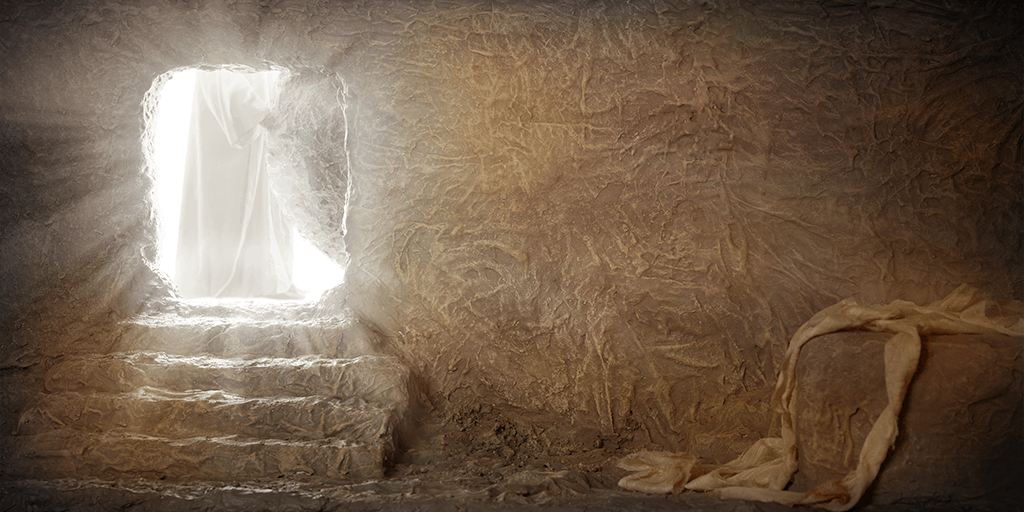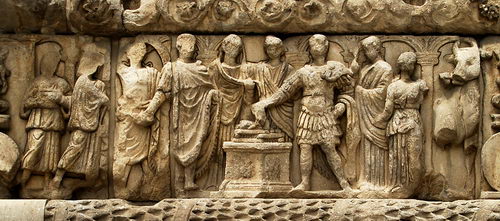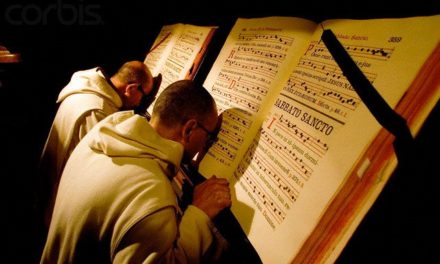This special episode of CS posts to the sanctorum.us website on Easter Sunday, 2015. I realize many subscribers will hear it at a later time, but since each week’s episode posts early Sunday morning, and this is Resurrection Sunday, a special podcast seemed appropriate. This week, we’ll be taking a look at the place of the celebration of Easter in the Early Church.
There’s considerable controversy over the origin of the word Easter as the label that’s come to be attached to the Christian commemoration of the Resurrection of Christ. It’s best to see the word coming from the Germanic languages & the Teutonic goddess of Spring, Eastre. Her festival marked the vernal equinox, & with the arrival of Christianity the holiday morphed to be the anniversary of the resurrection of Christ.
Today you’ll occasionally hear someone connect the word Easter to the Canaanite goddess Astarte, the Babylonian Ishtar, or some such other ancient deity. While there may be some etymological connection between the Teutonic Eastre & the Mesopotamian Ishtar, it’s submerged under the mists of time.
But for many years before the label “Easter” was attached to the day, the Church referred to it as Pascha, a Greco-Roman word for the Hebrew word for Passover.
Let’s not forget that Christianity’s roots lie in Judaism. The Gospel that is the heart of the Christian message is that Jesus fulfills all that the Jewish Passover points to. Just as the blood of the first Passover lambs delivered the Jews from bondage in Egypt, the blood of Christ, the Passover Lamb of God, delivers believers form bondage to sin & death. And in the first several decades of The Church, most Christians were Jews. Their Easter was really a Christian Passover, and they referred to it as such.
Then, as time passed and more Gentiles became Christians, the distinctly Jewish flavors of the church’s worship and calendar began to dim & alter.
The ante-Nicene church, that is, the Church before the first Council of Nicea in 325 AD, observed 2 annual holidays. The first was Passover which commemorated Christ’s suffering, and Pentecost which celebrated His resurrection & exaltation. Pentecost began with Resurrection Sunday & ended with Pentecost 50 days later.
Even though these were reckoned as 2 different holidays, Passover & Easter, by reason of their closeness in date, were a continuous celebration, combining the great sorrow with even greater joy.
The Christian Passover grew naturally out of the Jewish Passover just as the Lord’s Day grew out of the Sabbath. It’s the oldest and most important annual festival of the Church, and can be traced back to the 1st C. By the early 2nd C, it was being universally observed. From the beginning Jewish Christians continued to celebrate Passover, seeing the earlier holiday as prophetic of Christ. Gentile Christians, for whom the Jewish Passover had little significance, celebrated the Lord’s resurrection as they did every Sunday.
Between Good Friday that commemorates Jesus’ death and Resurrection Morning on Sunday is “the great Sabbath.” On that day the Eastern church fasted, often tarrying awake all night in anticipation of the glorious Return of Christ. A feast was held on Sunday to commemorate Jesus’ resurrection. This feast eventually became the defining part of the entire Paschal season.
Over time a new tradition developed in preparation for Easter. The day was preceded by a season of penitence and fasting, culminating in “Passion” or “Holy Week.” The fasting varied in length from 1 day, to 40 hours, to 6 weeks. By the 6th C, it was fixed at 40 days and today is called Lent.
The Early church fathers chart for us the debate that arose in the 2nd C over WHEN to observe Pascha. That debate grew over time to become one of the most contentious issues the Early Church wrestled with.
Two traditions developed in the Church of the Roman Empire & Mediterranean world. Since we’re pretty deep now into Church History, I’ll be you can guess where & how the sides of this debate lined up. If you said East & West, give yourself a pat on the back. Between the 2nd & 4th Cs, East & West argued vociferously over when to celebrate Easter.
While there were some simmering doctrinal debates like Arianism, the argument over when to celebrate Easter was just as, if not even more, contentious! And that likely gives us a clue to the root of the debate. Let me use an illustration.
Mark & Bill both are big time Los Angeles Dodgers fans. They’re on the same work team at XYZ Gadgets & Stuff. Both vie to be assistant to the team’s foreman, Fred, who could care less about baseball or any other sport. Mark & Bill agree it would be fun to get anyone on their work-team who wants to, to go to a Dodger game. The 2 dozen members of the team agree, so Mark & Bill look at the calendar to pick a date.
Mark says Tuesday, June 3rd is good. But Bill’s busy on Tuesday nights doing ballroom dancing with his wife. In fact, he knows Mark knows he’s busy on Tuesdays, so he picks Thursday, June 5th because Thursdays are Mark’s night to watch his kid. While Mark & Bill have kept the competition for position between them pretty light till now, word’s gone out that Fred’s getting promoted and his position will be opening up. So the tension between the 2 has increased dramatically. They’ve been digging each other and finding little things to argue over, each trying to outdo the other. The debate over which day to go to the game takes on a life all of its own as each campaigns for supporters in the work-team. Bill & Mark stop talking TO each other but ramp up a lot of talk ABOUT each other.
Soon the team is split 3 ways; Bill’s supporters, Mark’s supporters and those who refuse to take sides.
Then, one day in the parking lot after work, Bill & Mark come to blows. The argument seems to be about whether they should go to the game on June 3rd or 5th. Both guys claim that’s what the tussle’s about. But they’re the only ones who think that’s what it’s about. Everyone else knows it’s really a competition to see who’s going to take over the team as the new boss.
Reading between the lines of the chronicles of the Early Church – that is the ante-Nicean church – brueha over when to celebrate Easter, you can’t help but see a Bill & Mark / East & West tussle over “who’s in charge?” Who’s the big dog? Who gets to call the shots & control the levers of Church polity?
As Philip Schaff says in his monumental work on The History of the Church, the paschal controversies of the ante-Nicene age are a complicated chapter in the story, and are not yet cleared up by modern scholars. Though they were more of an administrative issue than doctrinal, they threatened to split the church; both sides laying too much stress on externals. Indirectly, the debate touched the question of the relationship between Christianity & Judaism.
The Eastern church stuck to the date set in Scripture for the Jewish Passover, the 14th of Nisan. This position is called ‘quartodeciman’ meaning 14th. The Eastern Church commemorated both the death & resurrection of Jesus on Passover, regardless of what day of the week it was. The Western church located the general time around the 14th of Nisan, but set the nearest Friday as the day Christ died with the following Sunday as the day He rose. So while the Eastern Church locked in the same day every year – the 14th of Nisan, the Western Church made it the same day of the week every year.
Thus a rather shocking spectacle followed when in the regions where East & West met, there were churches that overlapped their observance of first the death, then the resurrection of Christ. Some Christians mourned His Passion & death while others joyously celebrated His rising. It’s not difficult to see why tension rose between different communities of faith. Earnest efforts were made to harmonize the opposing factions about the fundamental facts of the Gospel and of the sacred season of the church-year.
The Crucial issue was whether the Jewish Passover, whether it was a Friday or not, or the Christian Easter Sunday, should control the time of the festival. The Eastern practice of adhered to historical precedent, and had the advantage of an immovable Easter, without being Judaizing in anything but the observance of a fixed day of the month. The Western custom represented independence from the Jewish calendar.
Another way to look at it is that in the Eastern tradition, chief stress was laid on the Lord’s death. In the Western tradition, it was on His resurrection.
The solution to the dilemma came by merging the 2 into one. Easter is still connected to the Jewish Passover as to its general season, but it’s fixed to a Sunday. This rule was set at the Council of Nicea in 325.
So here’s how the date of Easter is calculated à
Easter is always be celebrated on the first Sunday after the first full moon succeeding the vernal equinox, and always after the Jewish Passover. If the full moon occurs on a Sunday, Easter-day is the Sunday after. By this arrangement Easter may take place as early as March 22, or as late as April 25.
Okay, that’s the technical stuff. Now I put my pastor hat on, and honor the day for what it commemorates. Warning to those offended by overtly religious content, the rest of this episode is unapologetic Gospel proclamation.
Were it not for the resurrection, the history of Planet Earth would be radically different. When Jesus died on that Roman cross, it looked to everyone that His campaign was done. He’d run His course and now it was over, done, finished! Even His closest companions had bailed on Him; all but John, who also eventually left the scene and returned to hang out with Jesus’ dejected disciples.
Jesus’ body was removed by the execution detail and handed over to a couple of covert supporters who wrapped Him in a linen shroud, shoved in some burial ointments & herbs, and placed Him in a newly hewn tomb in a nearby garden. These two men were in a hurry because the sun was about to set, signaling the start of the Sabbath, when work such as they were doing was strictly forbidden.
Watching from a distance was a little group of women who’d been wondering what would become of Jesus’ body. They watched the way the two men fumbled the burial task. It was obvious they were unaware the proper routine which the women knew well as it was something they’d done many times. They followed as the two men carried the body to the tomb and watched as they set it inside, then rolled the big stone across the entrance. Just as they did, the sun set, starting the Sabbath.
The women vowed they’d return at the first opportunity to do a proper job of the burial. That’s why they came so early Sunday morning. And as they made their way, they wondered aloud who’d move the stone for them. Sealing the tomb had been easy because a slight decline allowed the stone to roll easily. Pushing it up an incline would be a different matter; too much for the women without help.
When they arrived, they realized they’d not need help with the stone—it was already lying on the ground in front of the tomb, as if knock over by a mighty hand. They looked in to see two radiant figures sitting upright at each end of the bench where Jesus body had been. Between them was an empty linen shroud made stiff by the dried burial ointments. One of the angels, for surely that’s what they were, said to the women Jesus had risen from the dead, just as He said He would. They were to go to the disciples and tell them.
They did, and as the day wore on, Jesus Himself appeared to several people and groups.
Those disciples, so shattered & disheartened by Jesus’ death, hiding out lest the authorities expand their search and arrest them too, go from cowering in fear, to a boldness that’s willing to face down both the Jewish High Court and the might of Rome.
There’s really no accounting for the transformation of the Disciples other than the Resurrection of Jesus. And while they literally saw and felt Him after the Resurrection, many millions since, while not having that privilege, still know the reality and power of the resurrection by virtue of the transformation that’s taken place in them by faith in Christ.
But please understand, not just faith – not the mental mechanics of believing just any old thing. According to the Gospel, faith doesn’t save us, JESUS saves us. Faith is just how the salvation He won flows to us, that is accrues to our account. Salvation is a gift God gives. The hand that receives it is faith.
Contrary to much popular thought, what the Bible means by Faith is not a “blind leap in the dark.” That may describe some people’s religious faith; their spiritual posture, but it’s not Biblical faith. Real faith is a reasonable response to the evidence.
You see, Christianity is rooted in history. It’s not merely the sage musing of some holy man. It’s not just a system of ethics, a “be nice & recycle” philosophy. The Christian Faith stands or falls on historical events. There was a real man named Jesus of Nazareth who lived, died and rose again. That He rose from the dead means we have to regard Him as different from all other people and assess His words & works with the utmost consideration.
I’m doing this podcast, a history podcast, because I’m absolutely convinced, utterly sure, Christianity is rooted in real historical events. I’m a Christian, not in spite of the evidence, as scoffers contend, but BECAUSE of the evidence.
Let me end with this: Applying the rules for how we know if something really happened in the past, a fair observer has to come to the conclusion Jesus rose from the dead. To categorically deny the resurrection from a presupposition that the dead can’t rise is to make a claim to omniscience. The skeptic becomes the very thing he denies, an all-knowing deity.
Please understand I don’t mean to offend by saying that. I only seek to reason with those who’ve categorically rejected the Gospel because of its supernatural elements. No one is so blind as he who WILL not see.
To any skeptics or scoffers who’ve hung through this far, I want to commend you for doing so. I respect you and your opinion. I really do. I’m thankful we live in a time and place where we can openly share different views and do so in a polite way without running to name-calling & polemics. I’ve been challenged by skeptics at many times and from many angles. I’m thankful for these as they’ve served to sharpen my thoughts and focus my motives. Too often we err and do what we saw earlier in this podcast; we talk ABOUT each other rather than TO one another.
Ideas tend to look a lot different when we’re dealing with them via a person rather than in a book, magazine, or when framed by someone in our own tribe.
May you have a blessed Resurrection Sunday.






Lance, as usual, you have done a marvelous job communicating, not only history, but truth. This will probably be my favorite podcast to date. I hope you and yours had a very blessed Resurrection Day celebration. May God continue to inspire you to share with us The History of the Christian Church.
Thank you so much Lemuel.